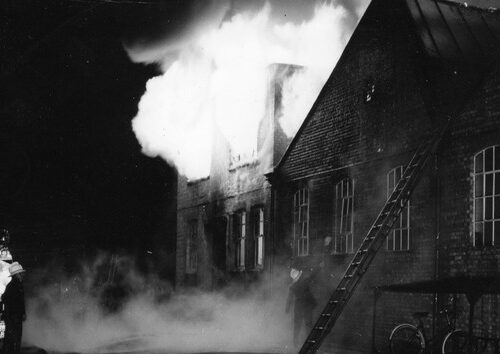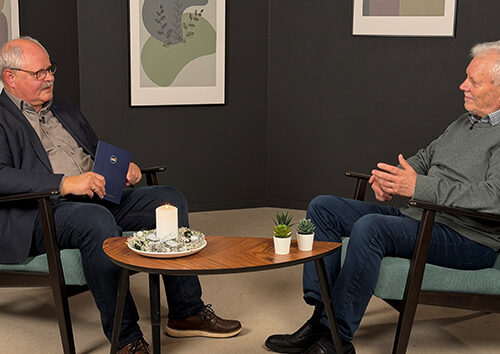25 September 2024|Grantham, UK [John and Esme Sutton with tedNEWS]
The Stanborough Press’s home for much of the 20th century was Stanborough Park, Watford, until January 1964, when it was destroyed by fire. Rather than rebuild, a decision was made by the British Union Conference to relocate ‘The Press’ 100 miles north to the small and almost unknown market town of Grantham, Lincolnshire. In all, 25 Families with children of various ages and 13 single workers moved from a suburban to a near-rural world. This is the story of that experience, providing a unique 50-year insight of their journey with ‘The Press’ family in its 140 years of service.
He was fifteen years old in 1955 when he left his West Country home and travelled 120 miles to Watford to join the ‘The Stanborough Press’ workforce. He had been offered a seven-year apprenticeship in the Composing Room, where the type was set for the books and magazines. In addition to the hands-on experience, he enrolled at the local Technical College in Watford for the theory of printing on two evenings each week. His weekly pay packet for the 9½ hours of work Monday-Thursday and 5 hours on Friday was £2.00! (The cost of his accommodation was £2 per week inclusive of meals.) His landlady was known for her love of fresh air at all times and had a no-nonsense approach to life!
The Press family gave John Sutton the friendship and encouragement he needed in those early days. There, he made lifelong friends who worked alongside him over the years. Managers and editors came and went, but over the years, many of those faithful friends worked together until their retirement. He was just short of fifty years of service when he retired! He would not have had it any other way!
The Press Family worshipped together every morning at 7.30 am. They worked together all day and often relaxed together. In his leisure time, he would join up with other young work colleagues tinkering with or riding on motorbikes – the favourite pastime, which progressed to old cars at a later date. Some evenings were spent at the church youth club, where snooker, table tennis, and weightlifting kept them busy. Weekends were special because there were very popular socials and occasional films. The Press was located in a beautiful park, so walks and sports activities were easily accessible. The Advent Youth Brass Band was formed during that time, which was very popular. Sabbaths were for worship, walks and relaxation. Lifetime friendships were established. There were romances, weddings, and then young families. As the years rolled by, many magazines and books were produced. The Press family was instrumental not only in producing literature that was beneficial to the Church but also in evangelistic outreach.
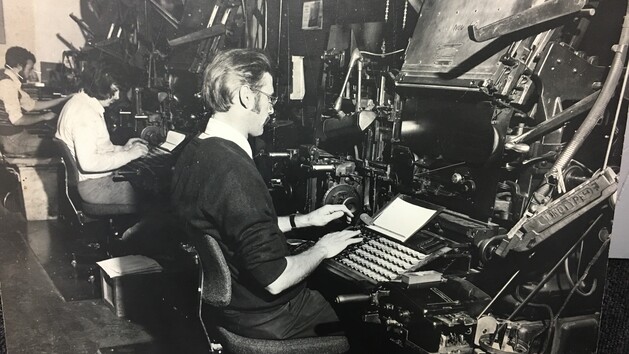
When trouble hit the plant machinery and modernisation became a necessity, the Press Family prayed and witnessed miracles time and time again. God poured out his blessings on the production teams and the leadership. There were many successes but also setbacks.
A Raging Fire – A Pathetic Trickle of Water
The fire that devastated The Stanborough Press early in January 1964 deeply distressed the Press Family. On that fateful morning, workers going to the Press saw the dark sky lit up with a red glow. As they drew nearer, their worst fears were realised. Flames were leaping high, and a pathetic trickle of water from the fireman’s hoses had little effect – the water pressure was too low! The question, “Why?” was on the worker’s lips. “Why has God allowed this to happen?” In time, the fire was brought under control and the workers were sent home, cold and in shock! They left the charred and smoking remains, but the acrid smell of smoke lingered on their clothing, and the sounds of creaking and crashing masonry reverberated in their ears. Some returned later as night watchmen to hear the building creak and groan as if in pain. It was a terrible time.
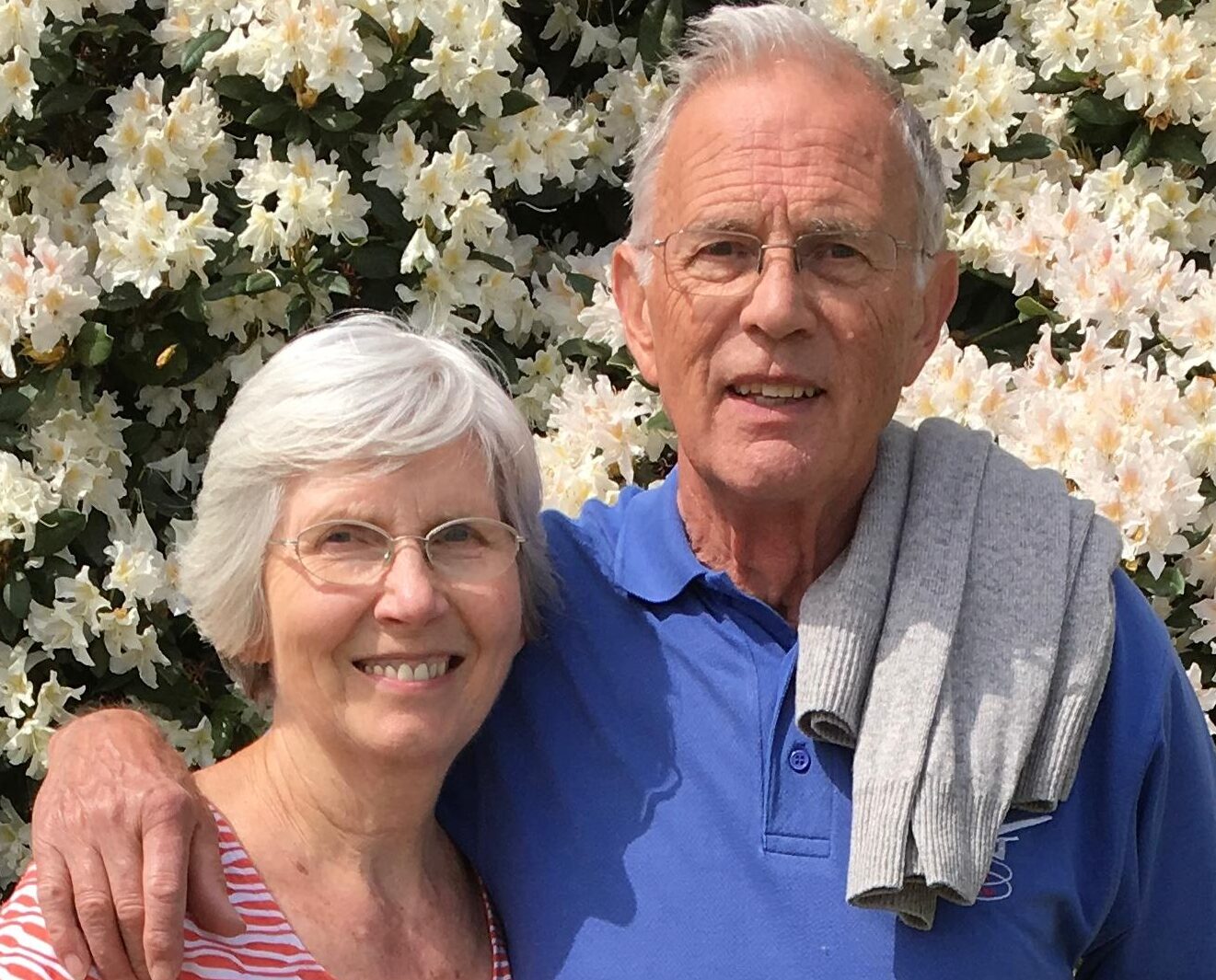
Days later, the charred remains reignited—the residual heat was so intense! However, many reams of paper were rescued, the charred edges were cut off, and the paper was put to good use at a local neighbourhood Primary School, where the children appreciated drawing or painting on high-quality paper, even though it ‘smelt funny!’ It was just one of the good things, large and small, that followed that disastrous event. God showed His love for His workers in many beautiful ways! Many other good things followed in quick succession.
Into the Unknown – the Move to Grantham.
God led us in a remarkable way from Watford to the Lincolnshire countryside, with the Press workers embracing the idea of moving 100 miles north of Watford, from Stanborough Park to Grantham. In all, 25 Families with children of various ages and 13 single workers moved from a suburban to a near-rural world.
A bigger, purpose-built building soon throbbed with the sounds of the big printing presses. Books and magazines soon poured out of the bindery into the hands of Literature Evangelists, who placed them in homes far and wide!
With the Civic authorities eager to welcome new industry to the area, housing for the workers was available. Affordable housing was available for those who dreamed of owning their own homes, and council accommodation was available for all who needed it—there was no waiting list in those days!
Many trips were made from Watford to Grantham by a Watford removal firm. “What is it about you people?” enquired one removal man. “You all have so many books and pianos.” The move was over in a matter of weeks, and the workforce was making huge adjustments – new homes, new town, new workplace, and for some, new babies!
From Flagship Church to Grubby Hall.
But there was no place of worship to call our own. We had left our beloved Stanborough Park and friends from the other institutions behind. We had grown up and flourished there. We had worked and worshipped there. The community was important to our well-being.
Not everyone in Grantham was happy to see us arrive, though! The Bishop of Grantham expressed his negative views about us on the front page of the local newspaper! He warned the Town about the arrival of an ‘American sect’. However, the local businesses seemed happy enough to serve and welcome us with their Lincolnshire speak. ‘Hey up me duck!’ ‘You alright?’
At the time, there was a small Adventist house group in the town, but there was no church. It was quite a shock for them to be inundated by such a large group of worshippers. Our places of worship varied, but many venues were far from pleasant – one hall was particularly unpleasant. The mess of the previous night’s revelries – beer bottles and cigarette ends, mixed with the smell of gas – was a far cry from the church in the woods at Stanborough Park.
‘So why didn’t we worship in the Press chapel you may ask. ‘It was because it was a long walk along a country road with no footpath. And there was no bus service that way. Not many of us owned cars at that time. It was our dream to worship in a church we could call home – a place where God’s love would be proclaimed in word and deed! And where we could all feel at home. After much hard work and sacrifice, our church and school were dedicated four years later. We gave glory to God! We still do. It was debt-free in a very short time!
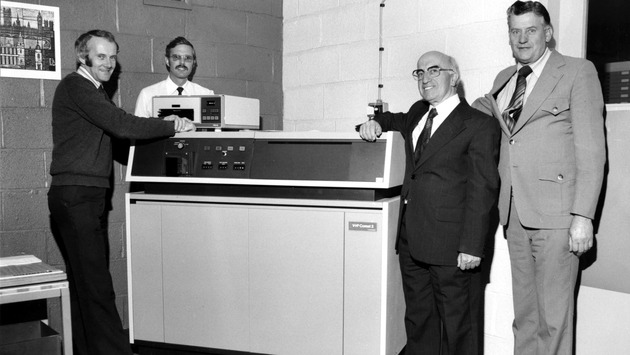
New Work Practices.
The Stanborough Press thrived, but it also had its challenges! One of the most stressful times was when modern technology was introduced in the Composing Room. The Linotype machines were set aside, and computers replaced the hot metal process that had been the norm for years! The computer keyboard was very different in layout to the Linotype machine. (Work then was an even greater challenge than the setting of The Bible Speaks in Afrikaans or The Bible Story in Dutch!) Barry Bell and I had to learn to type all over again. Fingers that had automatically touched the right keys had to be re-programmed. With God’s help they were upskilled, but it took a while to get up to speed once again.
The years have rolled by. The changes in the Composing Room were just one of many. Prayer, praise, hard work, and commitment ensured success, but the glory goes to God! The books and papers which have rolled off the presses have been distributed far and wide into the hands of those who need and read them.
Like Leaves of Autumn.
Not long ago, we were walking along the coastal path near Dartmouth (South-West England). We stopped briefly to visit the Coast Guard Station and watch them charting the traffic in the channel. As we left to resume our walk, John spied a copy of The Great Controversy on a shelf tucked among the nautical books. “Did you see that?” he exclaimed. “I wonder how that got there?”
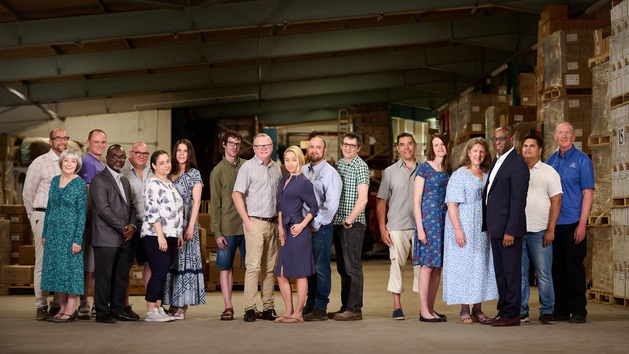
The years have passed by. The Stanborough Press workers, from managers to floor sweepers, have come and gone. There have been great changes. The building is almost shrouded in silence. Gone are the familiar sounds of the big presses churning out full-colour sheets of the printed page that went through one process after another and emerged as a finished product – a Stanborough Press publication. ‘It’s so quiet there now,’ John remarks. He worked there for almost fifty years, and all through those years, come rain or shine, through triumphs and trials, he and other men and women of faith deemed it a privilege to be part of the work God gave them, the Press Family, to do!
Photos: Stanborough Press and Chris Sutton.
